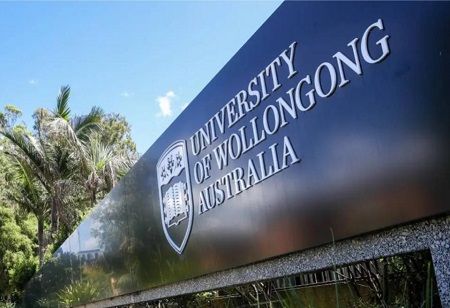The Australian National Centre for Ocean Resources and Security (ANCORS) at the University of Wollongong, in partnership with University of Wollongong Malaysia (UOWM), has launched the ANCORS Southeast Asia Maritime Institute. This marks a new milestone in the enhancement of maritime capabilities and cooperation between Australia, Malaysia, and Southeast Asia.
Speaking at the event, the speaker recalled the importance of the initiative while speaking about their own upbringing in Kota Kinabalu, Sabah, which is situated on the edge of the South China Sea. At a young age, they learned about the vital maritime trade routes that connect Borneo and the Malay Peninsula to global markets, playing a key role in shaping Southeast Asia as one of the most dynamic regions in the world.
According to the speaker, "Malaysians have a long history as maritime leaders and innovators, and the establishment of this new institute is a natural continuation of that tradition". The new institute is expected to facilitate improvement in regional maritime capabilities, deepen understanding of international law, and support rules and norms that safeguard the region.
The speaker said it is a process that requires all countries to nurture agreed rules, uphold international law, prevent conflict, and build strategic trust in order to maintain a 'peaceful, stable, and prosperous' region. "We want all countries, large or small, to operate by the same rules and norms", they said, highlighting the importance of international cooperation, especially in maritime security.
Quoting Prime Minister Anwar Ibrahim's Malaysia MADANI vision, respect, trust, and cooperation, the speaker said that the respect for international rules is much more important now than ever, especially in the South China Sea, where the respect for the Law of the Sea is crucial for the economic security of the region.
The launch also highlighted the leadership role that the University of Wollongong and ANCORS have played in maritime policy research and education. Over the past 30 years, ANCORS has developed into a world-leading research center with a global team of experts, providing top-tier education and training in maritime policy. This is one of the ways Australia is contributing to Prime Minister Anwar's vision, besides other Australian universities such as Monash, Swinburne, and Curtin, which are working on key issues such as medical research, renewable energy, and aquaculture.
One of the notable projects is a short course on Southeast Asian Women in Maritime Security, which represents the Institute's contribution to the region by bringing together maritime officials and experts from across Southeast Asia.
The Institute will provide critical training on complex maritime legal and policy topics such as ocean governance, maritime domain awareness, environmental protection, and the Law of the Sea. This will support regional leaders in achieving the shared goal of regional peace and stability.
The launch will complement the broader maritime support efforts announced by Australia and Malaysia earlier this year after Prime Minister Anwar's visit to Melbourne. Australian agencies will enhance collaboration with Malaysian maritime agencies through the Comprehensive Strategic Partnership and the Maritime Cooperation Package to build regional capabilities in ocean governance and maritime security.
As Malaysia prepares to chair ASEAN next year, the speaker was eager about the opportunities to support Malaysia's priorities, especially in the maritime sector, as he recognized ASEAN's central role in the region's stability and security.
The ANCORS Southeast Asia Maritime Institute will be in a strategic position to develop common interests and foster a peaceful, prosperous future in the region. The speaker looks forward to continued success of this initiative and all the collective achievements that come with it for Southeast Asia.

